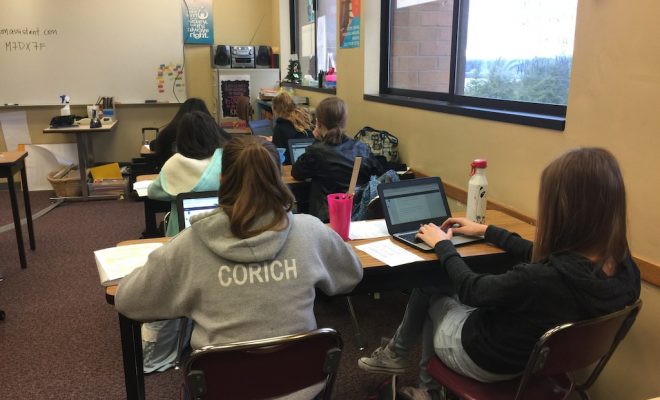Private Schools and the Law: Tips for Private School Administrators
Note: The following guest post was by Anthony Ashton, litigation partner at the law firm of DLA Piper LLP (US) in the Baltimore office. He conducts annual trainings for educators and administrations and regularly advises them on legal matters. He has served on the Boards of multiple schools, and is a former teacher and guidance counselor. Contact information: [email protected]
Whether the job title is Principal, Headmaster, Head of School, or Dean, the top administrator of a private primary or secondary school is effectively the CEO of a company. CEOs of most successful companies are aware of the laws that apply to their businesses, and budget annually for legal services. A smart CEO regularly consults with the company’s in-house general counsel or what is effectively outside general counsel. Even small private schools typically have multimillion dollar annual budgets. Despite this, many schools have exactly $0 built into their budgets for legal services. Because numerous and varied laws apply to, and have the potential for devastating effects on schools, presumably, this missing budgetary item is due to a failure to appreciate the need for, and usefulness of, competent legal advice, rather than apathy for the law. This article will explain why best practices include annual training for faculty, staff, and administration on key legal topics, and regular access to legal advice.
At its core, education is a service industry. Unlike other service companies, schools have two subsets of clientele, parents and students, who have divergent legal obligations, legal rights, and legal standards of behavior. For example, although they are not the recipients of the services provided by schools, parents are contractually obligated to pay tuition. Despite the fact that students have no obligation to pay tuition, schools owe a legal duty to students to ensure students’ safety while on school grounds or at school-related activities.
Tip One: Annual Risk Management Training
A school can breach this duty by failing to protect a student from harm caused by school employees, fellow students, and even the student herself. Although the law requires adults to protect themselves by acting as reasonably prudent persons, children are required only to act as reasonable persons of their age would act. In short, children are allowed to behave as children. This lowered standard of care also applies to how children interact with one another. It is incumbent upon school personnel to act in a manner that reduces the risk to students and, in turn, the school’s potential liability. Consequently, risk management training should be a part of school personnel’s annual training, and should occur as close as possible to the beginning of each school year. Assuming a school has an attorney on retainer, this should be included in the legal services provided. The adage “an ounce of prevention is worth a pound of cure” is especially true in the school setting. It is easy to criticize actions after an injury or complaint from a parent. The goal is to avoid such injuries and complaints. Training faculty, staff, and administrators to conduct a risk/benefit analysis (consider the best and worst probable outcomes) before each interaction with children provides great protection for the students and, as a result, the institution.
Tip Two: Annual Training Regarding State Reporting Obligations
Because many states have reporting obligations related to suspected child abuse and neglect, a school may breach the legal duty to a student by failing to protect a student from harm that takes place outside of school and unrelated to school activities. Reporting obligations may require school personnel to report suspected abuse from parents or other household members. In short, the school may be obligated to protect a member of one group of its clientele from a member of the other group of its clientele. Reporting suspected abuse may result in embarrassment to, and anger from, the person ultimately responsible for paying tuition and determining whether the student remains enrolled at the school. Thus, there is an inherent conflict of interest. The law, however, does not care about this conflict. Next, there may be reluctance to report because abuse subjectively may be associated with lower income, less educated families, rather than the population served by the school. The law, however, does not care about the socio-economic background of the child or suspected abuser. A firm understanding of the legal reporting obligations is a must, and training on this topic should take place annually.
Tip Three: Have a Copy of Child Custody and Visitation Court Orders
Schools also may be drawn into disputes between feuding parents. Divorced or divorcing parents may argue as to who is permitted to perform child pick-ups, agree to fieldtrips, or make other educational decisions. As a consequence, the school may be caught in the middle of two members of one group of clientele. It is important that schools: (1) know whether there is a court order regarding custody and visitation; and (2) be able to understand the legalities of any such order. Again, the best practice would be to have an outside counsel on retainer to explain the implications of these court orders. Court orders will typically set forth if one parent has primary custody or the parents have shared custody, who may make educational decisions, who is responsible for paying tuition, etc. By being able to knowledgably refer to a court order, school personnel potentially can avoid being intimidated by parents seeking to take actions contrary to the court order. A typical example of such an action involves Parent A attempting to deny Parent B visitation or custody rights because Parent B is delinquent in spousal or child support. Parent A may instruct the school not to allow Parent B to pick up the child from school. The school, however, has no authority to stop a parent from acting in accordance with a court order.
Tip Four: Annual Sexual Harassment Training
As with all service industry companies, schools are labor intensive. Accordingly, sexual harassment training for all employees related to how they interact with each other should take place on an annual basis. In addition, each school should have a written policy addressing the protocol for reporting, investigating, and handling allegations of harassment. In recent years, the media and, consequently, the public at large has become enthralled with student-teacher sex scandals. Accordingly, there should be annual training related to inappropriate interaction with students. Training should include guidelines regarding dealings with students in person, via telecommunications devices, and social networks. School personnel should avoid being placed in any situation where they have to deny wrongdoing, and explain their actions. School personnel must be hyper-vigilant in ensuring, not only that there is no improper interaction, but that there is not even the appearance of such. The cardinal rule should be: “perception is just as important as reality”.






